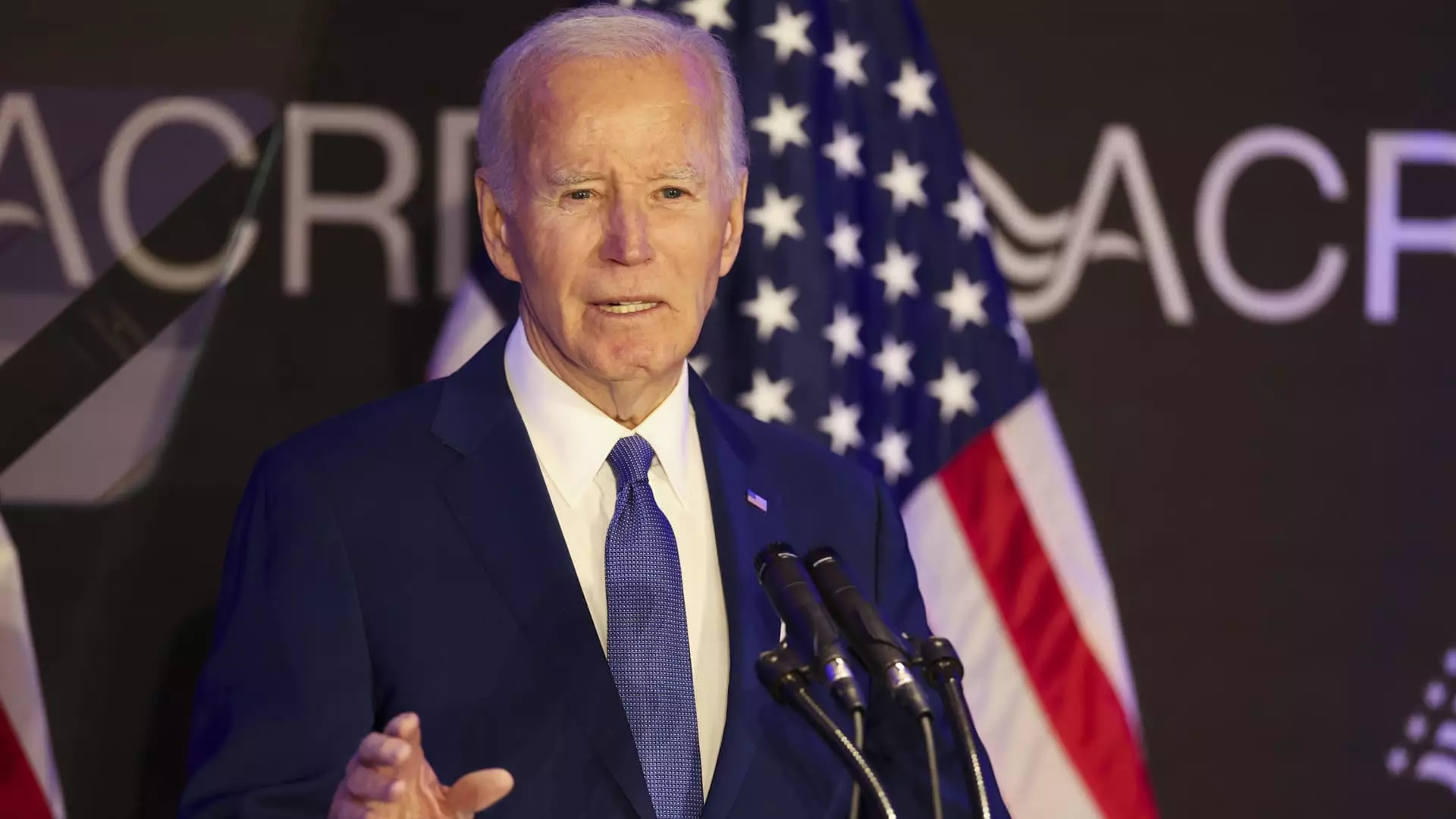In a development that rattled political circles and captured the attention of a nation, former President Joe Biden’s recent diagnosis of prostate cancer came to light. His office announced that this formidable ailment was discovered after he experienced urinary symptoms and a prostate nodule was identified during routine examinations. The gravitas of this diagnosis cannot be overstated—it’s advanced, with cancer cells having metastasized to the bone. While medical professionals noted that the cancer is hormone-sensitive, which may offer some avenues for effective treatment, it undeniably remains an aggressive form of the disease.
The news is unsettling not only for those who hold stakes in Biden’s political future, but also for the American public that has kept a watchful eye on the health of its leaders. At the age of 82, questions about Biden’s vitality and endurance were already swirling, igniting a mix of concern and skepticism about his capacity to serve effectively. This diagnosis poses new challenges that must be navigated on both personal and political levels.
The Gleason Score Dilemma
Central to the conversation surrounding Biden’s diagnosis is the alarming Gleason score of 9, which categorizes his cancer among the most aggressive. The Gleason score serves as a stark reminder that cancer is not merely an obstacle to overcome but a true adversary in the game of life. The implications of a high score are heavy—this statistic portends ongoing struggles that may outstrip the jovial optimism often associated with his leadership.
When cancer of this aggressiveness spreads, its malignant tendrils can infiltrate the bones, complicating any treatment strategy and diminishing the likelihood of a manageable outcome. Although the medical community suggests that hormone-sensitivity provides a ray of hope for treatment options, the accessibility and effectiveness of those treatments remain deeply uncertain. Emerging from this disheartening backdrop is the realization that prostate cancer, much like politics, demands both a strategy for engagement and a carefully plotted pathway to success amid considerable risk.
Political Ramifications and Public Sentiment
The left and right wings of the political arena have expressed their well-wishes for a quick recovery—an unexpected display of solidarity in a time defined by partisanship. Former President Donald Trump offered a statement reflecting sadness over the news, joining countless others in echoing a universal sentiment: the profound impact of life-threatening illness on any individual is a cause for empathy, transcending ideological boundaries.
Yet while these gestures convey goodwill, they also manifest the complex fabric of public expectations and political realities. Biden, in previous encounters, articulated a desire to maintain his capacity to lead effectively despite concerns over his age. However, with this latest health concern, it raises the pivotal question: can he withstand both personal and political storm clouds that threaten to throttle his leadership ambitions?
A Turning Point for Prostate Cancer Awareness
Interestingly, this diagnosis comes at a time when Biden has already positioned cancer research as a critical initiative during his presidency. The ‘Cancer Moonshot’ program aims to significantly reduce cancer-related mortality rates over the next quarter-century—a pursuit that feels both personal and poignant, given the loss of his son Beau to brain cancer. It is a profound irony that in his mission to eliminate the disease, he finds himself grappling with it firsthand.
As a prominent public figure, Biden’s journey with prostate cancer could catalyze a national dialogue about this prevalent yet often stigmatized illness. It may also prove vital in reshaping the narrative surrounding how personal health can intertwine with public service. Biden’s battle is not simply his own; it is an opportunity for increased awareness, encouraging men everywhere to prioritize their health and remain vigilant against early signs of illness.
Through adversity, Biden’s situation highlights the delicate balance of public service and personal trials, underscoring the need for not just a political leader but a resilient human being willing to fight against the odds in the name of a greater cause.


Leave a Reply